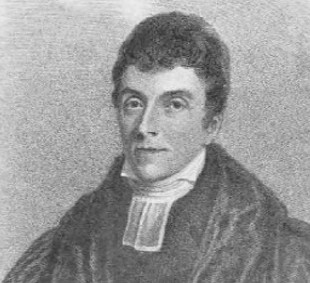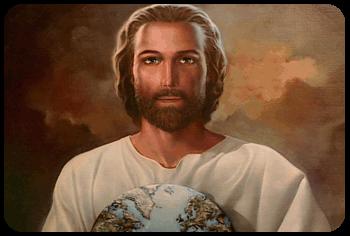|
**List: Arabic Ministry
Holy Bible ( الكتاب المقدس )
Arabic Van Dyck Bible (1860)
ArabBible
[2004-2013 NT & OT {Gen, Deu, Psa, Pro, Isa, Dan, Jon, Mal}.]
[Info: Classical Arabic w/ al-Ilaah.]
Arabic...
"Arabic, spoken by an estimated 90 million people
from North
Africa to Iraq, is known by many Musl_ims throughout the world
as the language of the Kor_n. Originally
restricted to the
Arabian Peninsula, where they were
known in Biblical times,
the Arabians began their conquests in the 7th and 8th
centuries,
inspired by Isl_m, the religion proclaimed during the
early 7th
century by...Mohamm_d. Also called Saracens or
Moors, the Arabs conquered an area extending from
Spain to
India and Central Asia, evangelizing by invasion and spreading a
highly developed Isl_mic culture. Arabic
became the language of
the Musl_m Empire, except in
Turkey,
Persia, and India. During
the Middle Ages Musl_m arts, literature, and science
flourished,
and it was contact with Isl_mic learning that helped
to bring
about the revival of Western creativity and curiosity known as
the Renaissance.
Arabic is a Semitic language, related to the Akkadian (Assyrian
and Babylonian), Canaanite (Phoenician, Moabite, Ugaritic,
and Ancient Hebrew), and Aramaic languages. The language
spoken by the people of Arabia is mentioned in Akkadian
tablets of the early part of the first millennium B.C., but
classical
or literary Arabic of today (Fasih) is the Mecca dialect
common
at the time of Moh_mm_d. This ‘Kor_n Arabic’ has become
standard throughout the Arabic world, although it is not a
spoken language, except for formal speeches and pronounce-
ments. Colloquial Arabic differs
considerably from country to
country. In some nations urban and rural distinctions also exist.
The Arabic script is written from right to left. It contains 28
consonantal letters, most of which have several different forms.
Vowels are indicated by marks either above or below the
printed line, but are seldom used except in religious literature.
The Arabic writing developed from that of the Nabateans. This
script, in turn, seems to be a development of Aramaic script.
Christianity was introduced to Arabia as early as the 4th century,
and it can logically be argued that an Arabic translation of the
Scriptures might have been made for these early Christians.
However, most scholars maintain that there was probably no
Arabic translation of the Bible until after the 7th century, when
the success of the Kor_n had standardized Arabic and
elevated it
to the level of a literary language. In any case Arabic Biblical
manuscripts dating from the 9th and 10th centuries are numerous.
Translated from
Hebrew,
Greek,
Coptic,
Syriac,
Latin, and even
Samaritan,
there are extensive collections of Arabic manuscripts
at the Monastery of St. Catherine at Mt. Sinai, the
Patriarchal
Library of Cairo, the Vatican Library, Leiden, Paris,
London,
and Cambridge. Among the most important of these are:
The 10th-century version of Saadia Gaon,
published in Paris and
London Polyglots (Pentateuch only) and a millennial anniversary
printing, edited by H. Derenbourg, 1893-1900, Paris."--1000 Tongues,
1972 [Info only:
"was made directly from the
MT and is said
to have covered the whole of the OT" per ISBE]
"The 9th-century Sinaitic Mss. of Acts, the
Pauline Epistles, and
the [General] Epistles, published in 1894 and 1899, Studia
Sinaitica,
edited by Margaret D. Gibson."--1000 Tongues, 1972 [Info only:
See Syriac.]
"The Aleppo Psalter, a translation of the 11th
century, published
first in 1706, Aleppo."--1000 Tongues, 1972 [Info only: RCC.]
"A 10th-century Arabic version of the Gospels,
translated in
Spain by Isaak, son of Velasquez, a Spanish Christian, and the
13th-century Alexandrian Vulgate, translated from
Coptic, are
also noteworthy."--1000 Tongues, 1972 [Info only: Alex.
Vulgate?]
|
Publications of Scriptures in Arabic
"1516 Psalms (Polyglot) P. P.
Porrus, Genoa
Edited by Augustino Giustiniani and Baptista Cigala.
Contains the
Hebrew,
Latin,
Greek,
Aramaic (Chaldee), and
Arabic."--1000 Tongues, 1972 [Info only]
|
"Psalterium, Hebręum, Gręcū,
Arabicũ, & Chaldęũ, cũ tribus latinis
ĩterp̃tatoibus & glossis ... ([Genuae, 1516])"
[Info only]
https://catalog.hathitrust.org/Record/001410282
"A version of the
New Testament in modern Arabic was printed at Calcutta in 1816, designed
principally for the learned and fastidious Moh_mm_d_ns in all parts of the world, who, it was
thought,
might have been repelled from the study of Scripture by the antiquated style
of former versions.
This translation was made by a learned Arabian scholar, the unhappy Sabat,
under the supervision of
the Rev. S. M. Thomason. The lamented Henry Martyn was deeply
interested in Sabat, and the
production of his version; but he did not live to see it finished.
A second edition was printed in
London in 1825, under the care of Professor Lee; and a third in Calcutta, by
the Rev. S. M. Thomason,
in the following year: but the version has not been found generally
acceptable in countries where the
language is vernacular, and it has not since been reprinted."--1860
S. Bagster [Info only]
|
ARABIC. BFBS.--The Bible of Every Land. (1860, Second Edition)
Samuel Bagster [Info only: "1825" John 1:1-14 unknown; used
Allah.]
"Sabat Version: N.T. by the
BFBS, Calcutta, 1816, translated by
Nathaniel Sabat, under the supervision of Henry
Martyn."--1000
Tongues, 1939 [Info only]
|
"1816 New Testament BFBS, Calcutta
Translated by Nathaniel Sabat and Thomas Thomason. A revision by
S. Lee and J. D. Macbride was printed by the BFBS, 1825, London.
A further revision by Thomason appeared in 1824-1826, BFBS,
Calcutta."--1000 Tongues, 1972 [Info only:
See Lee's & Macbride's compromise of 1822 w/ the Latin Vulgate.]
|
"1829 Gospels (with Coptic) BFBS, London
Edited by S. Lee."--1000 Tongues, 1972 [Info only: ?]
|
"Coptic and Arabic. (London, 1829)"
[Info only]
https://catalog.hathitrust.org/Record/008633889
|
"The need of an improved translation
of the Scriptures in Arabic, so long and so deeply felt by the
Eastern Churches, has at length been met by the Christian Knowledge
Society. Their agent, the
Rev. C. Schlienz, relates, as the result of his personal observations in the
East, "...." In 1839 the prepara-
tion of a new Arabic version was commenced, by the direction of the Society,
under the superintendence
of the Rev. C. Schlienz. The first draft of the whole translation was
originally made by Mr. Fares
(admitted to be one of the best native Arabic scholars of the day), from the
authorised English
Bible, under
the directions of the late Professor Lee, by whom it was afterwards, to a
very considerable extent, cor-
rected by the original Hebrew. The printing was commenced in London
under the superintendence of
Professor Lee, assisted by Mr. Fares, the proof-sheets passing also in
succession through the hands of a
sub-committee of revision, consisting of able Biblical and Oriental scholars.
Upon the death of Dr. Lee,
in 1852, his place as principal editor was filled by Professor Jarrett, who,
with the continued aid,
throughout, of Mr. Fares, carried the work through the press to its
completion in 1856. Thus an
uniform version of the Holy Scriptures, in pure Arabic, according to the
Hebrew and
Greek originals,
has at length been completed by God's blessing." --1860 S.
Bagster [Info only]
|
"1850 Psalms 1851 New Testament
1857 Bible
SPCK, London
Translated by Faris Al-Shidyak, S. Lee, and Thomas Jarrett."--
1000 Tongues, 1972 [Info only: pro-KJV.]
|
"New Testament in Arabic. (London, Printed by
William Watts, 1850)" [Info only]
https://catalog.hathitrust.org/Record/001937150
"1852 New Testament SPCK, London
Translated by William Cureton."--1000 Tongues, 1972
[Info only: ?.
See Syriac.]
|
"The hexaglot Pentateuch; or, The five books of
Moses, with the corresponding Samaritan, Chaldee, Syriac, and Arabic, ed. by
Robert Young. (Edinburgh, R.
Young, [1852?])" [Info only]
https://catalog.hathitrust.org/Record/006606198
"Van Dyck Version: N.T. ABS,
Beirut, 1860; Bible, 1865. Tr. by
Eli Smith and Cornelius V. A. Van Dyck, of the ABCFM, and Muallim
Butrus El-Bistani and Sheik Nasif El-Yaziji and Sheik Yusuf El-Asir.
Also published by the BFBS."--1000 Tongues, 1939 [Info
only]
|
"1860 New Testament 1864-1865
Bible ABS, Beirut
Translated by Eli Smith and Cornelius Van Dyck, American Board of
Commissioners for Foreign Missions. It became the standard Arabic
Bible."--1000 Tongues, 1972 [Info only: used Allah.]
|
"1864 Gospels F. Brockhaus, Leipzig
Edited by Paul de la Garde from Mss. in the Vienna Library."--
1000 Tongues, 1972 [Info only: ?]
|
"1885-1894 Ruth Esther-Ecclesiastes
Lamentations
(Hebrew character) Jerusalem, Aleppo, and Calcutta
Edited by Meyer Sason."--1000 Tongues, 1972 [Info only:
?]
|
ARABIC--1000 Tongues, 1972 [Info only: HEBREW CHARACTER
"1892" John 3:16 unknown; used Ellah (אללאה).]
"1903 Luke BFBS, London
A transliteration into Tunisian script of the
Smith-Van Dyck text, by
G. B. Michell, North African Mission."--1000 Tongues, 1972
[Info only:
TUNISIAN CHARACTER "1903" John 3:16; probably used Allah.]
|
"1939 Luke Trinitarian BS, London
A colloquial rendering, prepared for the
TBS."--1000 Tongues,
1972 [Info only]
|
"1954 Psalms Printed privately
Translated by Riskallah Araman."--1000 Tongues, 1972
[Info only: ?]
|
"1957 Romans Hebrews
Ephesians 1958 Galatians-
Colossians James-Jude 1959 Matthew P.
Feree,
Ain Dragam, Tunisia
Translated by Abdelatif."--1000 Tongues, 1972 [Info
only: ?]
|
"1959 Ephesians BS, Cairo
1960 Proverbs BS, Beirut
1967 John 1968 Matthew Mark BS in Near
East
A revision of the Van Dyck translation, by Butrus
Abdal-Malik and
others."--1000 Tongues, 1972 [Info only: ?]
|
ARABIC--1000 Tongues, 1972 [Info only: VAN DYCK VERSION
"1962" Mark 1:2 correct (prophets); used Allah.]
**File: Arabic--Other Bible History
**File: Arabic Bible History (3)--1860
S. Bagster [Info only]
**File: Arabic Bible History (3j)--1860
S. Bagster [Info only: Judæo-Arabic; or, Arabic in Hebrew
characters.]
**File: Arabic Bible History (3c)--1860
S. Bagster [Info only: Carshun, or Arabic in Syriac characters.]
**File: Arabic Critical Text History
|
*printed Book: Bible (~1860)
[ Title Page ]
[Info only: used Allah.]
[Ref: Ronnie Munson & M. Martin.]
*printed Book: N.T. (~1860) Arabic Bible Outreach Ministry
[Info only: used Allah.]
|
**List: Arabic Bible (~1860)
OLB [Info only: used Allah.]
"New Testament in Arabic. (Beirut, American
Bible society, 1906)" [Info only]
https://catalog.hathitrust.org/Record/001937246
"Old & New Testament in Arabic. (Beirut,
American Bible society, 1912)" [Info only]
https://catalog.hathitrust.org/Record/001928351
|

